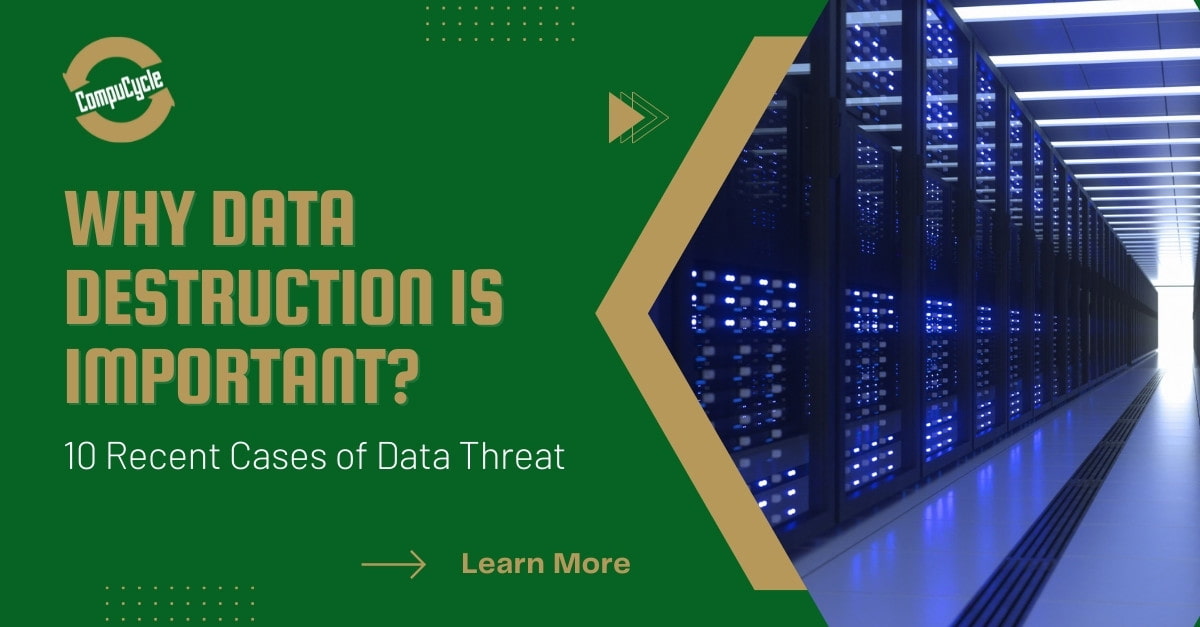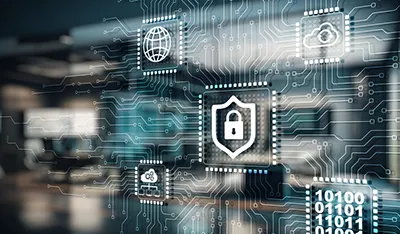Vital Cyber Security Practices for Effective Data Destruction Techniques
Vital Cyber Security Practices for Effective Data Destruction Techniques
Blog Article
The Essential Nature of Information Destruction in Upholding Computer System Safety Solutions and Protecting Versus Unauthorized Accessibility
In an era where data violations and identification theft are progressively common, the importance of effective information destruction can not be overstated. Organizations needs to acknowledge that the failing to properly deal with delicate info postures not only legal and financial risks but also a possible disintegration of customer trust fund. Various approaches, from data cleaning to physical destruction, act as critical safeguards versus unauthorized access. Recognizing the ramifications of information destruction methods and conformity with policies increases crucial concerns regarding the competence of current techniques and their lasting stability in the face of developing threats.
Importance of Data Devastation
In a significantly digital world, the relevance of information damage can not be overemphasized. As organizations amass substantial quantities of delicate info, the prospective effects of falling short to appropriately get rid of and handle of that data come to be increasingly serious. Data breaches, identity theft, and company espionage posture considerable hazards, highlighting the requirement of effective data devastation practices.

Moreover, as technology advances, so too do the methods whereby destructive actors seek to manipulate sensitive information. Organizations has to remain vigilant and proactive in their data devastation strategies to safeguard versus these advancing dangers. By focusing on information damage, firms not only shield their possessions however likewise foster trust fund amongst clients and stakeholders, demonstrating a dedication to accountable information monitoring and security techniques.
Methods of Effective Data Devastation
To ensure the full and irreparable destruction of delicate information, organizations can utilize a selection of reliable methods tailored to their specific demands. Among the most typical methods is data cleaning, which involves making use of specialized software program to overwrite existing information numerous times, making healing virtually impossible. This is specifically beneficial for tough drives and solid-state drives, where standard deletion approaches are inadequate.
An additional effective approach is degaussing, which uses solid magnetic areas to interrupt the magnetic domain names on storage media, rendering the information irretrievable. This technique is particularly matched for magnetic storage tools, such as tape drives and hard drives.
Physical destruction is also a viable alternative, including the shredding, squashing, or incineration of storage gadgets. This method guarantees that information can not be recuperated, making it suitable for companies managing highly delicate information.

Conformity With Information Defense Laws
Organizations have to not only concentrate on effective data destruction methods yet also guarantee compliance with information security regulations that govern just how delicate information is taken care of and disposed of. Sticking to these policies is necessary for guarding individual information and maintaining customer count on. Rules such as the General Information Defense Guideline (GDPR) in the European Union and the Medical Insurance Portability and Liability Act (HIPAA) in the United States enforce stringent guidelines on data administration, that include needs for the secure disposal of sensitive info.
To achieve compliance, organizations have to implement extensive information destruction policies that straighten with these legal structures. This consists of recognizing information that calls for destruction, establishing protocols for protected methodsâEUR" such as shredding physical media or making use of software that fulfills industry requirements for information wipingâEUR" and keeping detailed records of destruction activities. Routine audits must be performed to make sure adherence to these policies and to identify any kind of possible areas for renovation.
Failing to adhere to information security regulations can lead to substantial lawful implications, including hefty fines and damages to a company's credibility. Consequently, integrating conformity right into information devastation techniques is not only a lawful obligation yet also an additional resources important part of a robust information protection method.
Effects of Poor Data Handling
Poor data handling can cause extreme consequences that expand past instant functional problems. Organizations might face considerable monetary losses as a result of information violations, which typically result in pricey remediation initiatives, lawful fees, and regulative penalties. These financial implications can stress resources and hinder development, ultimately affecting a company's bottom line.
Moreover, poor data handling can significantly damage a company's credibility. Companions, consumers, and stakeholders may lose depend on in an entity that stops working to secure sensitive details, bring about decreased customer loyalty and possible loss of organization possibilities. This disintegration of depend on can take years to restore, if it can be brought back in any way.
Furthermore, organizations can encounter legal ramifications emerging from non-compliance with information security guidelines. Such offenses might result in examinations and penalties, intensifying the monetary burden and more tarnishing the company's picture.
In the realm of cybersecurity, poor information management techniques can develop vulnerabilities that make systems more susceptible to unapproved gain access to and cyberattacks. Ultimately, these effects highlight the vital significance of applying robust data taking care of procedures to safeguard sensitive details and preserve organizational honesty.
Finest Practices for Secure Information Disposal


To start with, information need to be categorized according to its level of sensitivity. Sensitive info needs much more extensive disposal methods, such as shredding physical documents and utilizing innovative software application for electronic data cleaning. Utilizing licensed information destruction services makes certain compliance with sector guidelines and criteria.
Second of all, organizations ought to execute an information disposal policy that mandates routine audits. This plan should outline the treatments for data retention and destruction, guaranteeing that obsolete data is thrown away quickly and safely. Educating employees on these procedures is vital to fostering a culture of protection awareness.
Lastly, preserving in-depth records of disposed information boosts accountability and offers a clear audit path. This paperwork ought to consist of the sort of information destroyed, the method utilized, and the day of disposal.
Conclusion
Taking on durable methods such as data cleaning, degaussing, and physical damage, along with conformity with guidelines like GDPR and HIPAA, is necessary for safeguarding sensitive details. Neglecting appropriate data disposal methods can lead to severe effects, consisting of information violations and lawful effects.
In an era where data violations and identity theft are my latest blog post significantly prevalent, the relevance of effective data damage can not be overstated. data destruction. Data breaches, identity theft, and corporate reconnaissance present significant hazards, emphasizing the requirement of efficient data destruction practices
Compliance with laws such as GDPR and HIPAA requireds that companies implement strict information protection measures, consisting of the safe and secure destruction of information at the end of its lifecycle.
By prioritizing data damage, companies not just safeguard their assets however additionally foster depend on amongst customers and stakeholders, demonstrating a commitment to liable data administration and security practices.
Organizations need to not only concentrate on efficient information damage approaches but also guarantee compliance with data protection regulations that control just how sensitive info is taken care of and disposed of.
Report this page